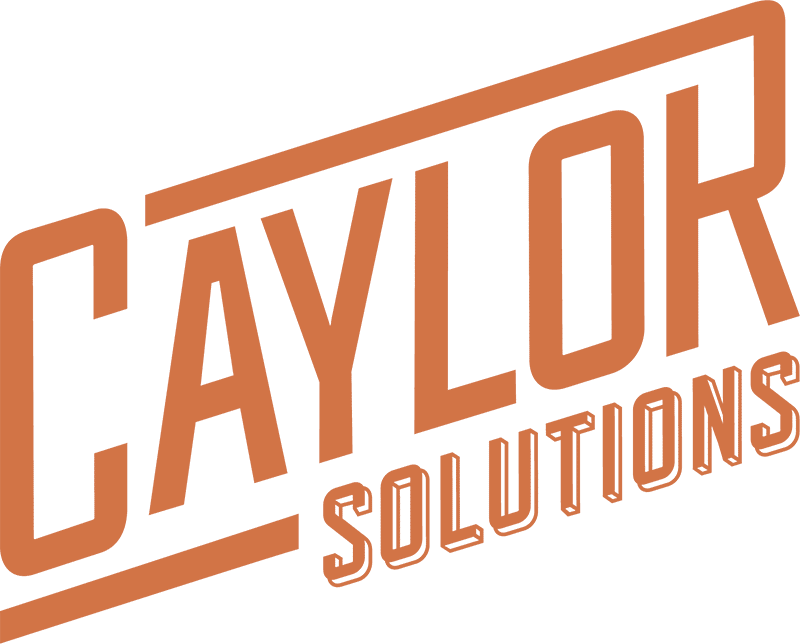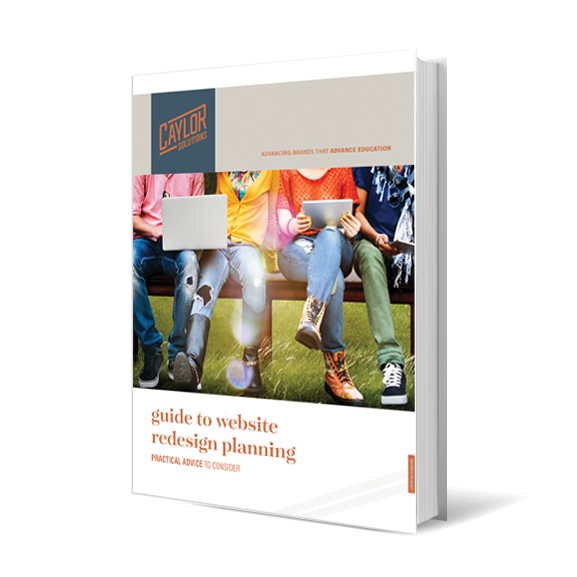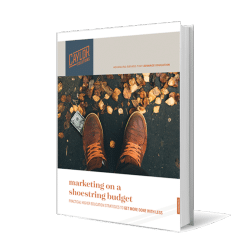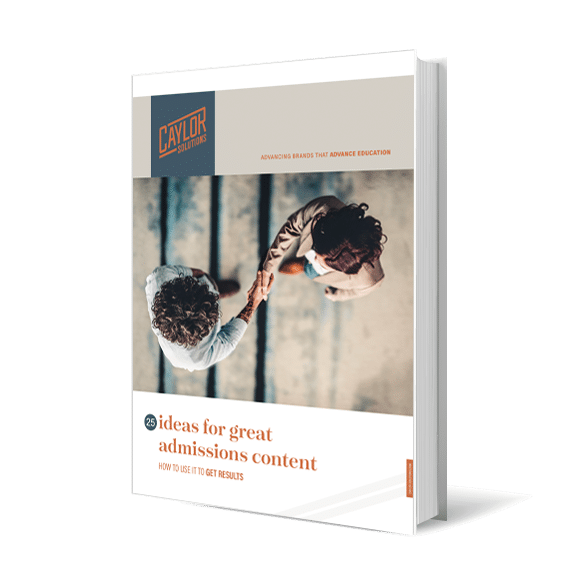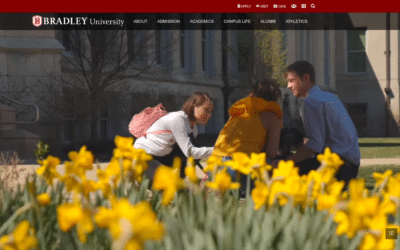A growing number of schools are curious about the benefits of using a kind of paid media called pay per click (PPC) advertising.
Whether we’re talking about Google ads, Meta ads, or other social media ads, lots of schools are exploring these kinds of campaigns by investing their marketing dollars into paid campaigns.
But there’s a right and a wrong way to execute these campaigns.
Unfortunately, there’s an oversimplistic idea out there that with PPC, you simply put in the money and new students come out on the other end.
This is why it’s important to understand the best practices that the pros use when engaging in paid media and how you can set healthy expectations from your leadership.
Successful PPC marketing is a long incubation process, and often, decisions won’t be made from one ad.

Matt runs the internal agency of the University of Illinois that helps with paid media.
In our conversation with Matt, he unpacks the best practices and offers insights on how higher ed marketers can push the envelope forward with paid media.
Start Your PPC Ads with Your Goals and Objectives in Mind
Immediately when we talk about paid media, colleges and universities with limited budgets can feel like the underdog with very little to invest in paid advertising.
Others who may have advertising dollars to spend can feel unsure as to how much they should budget for PPC.
How much is too much to spend? How much is too little?
Matt assures education marketers in both situations that clarifying your goals and objectives is much more important than determining how much money you can or should put into a PPC ad campaign.
[If you don’t know how much money you] should ask for, or what kind of budget is necessary, that’s where you have to subjectively look at your goals and objectives for that particular campaign.
When you look at those specific goals and objectives, you [determine the] recommended tactic for you. [Based on] the recommended tactic and how long you want that advertising to go out there, well, then you only need XYZ, as far as your budget goes.
People get scared because they always think it takes a lot [of money]. But that’s the beauty of this new modern world of digital advertising!
Sure, you could pay $60,000 for a billboard on the inbound Eisenhower in Chicago. But you could also take $500 and do a geo-targeted campaign with Google search with specific keywords for your individual small molecular biology program that contextually brings in words like “biology” and “science,” to where your $500 could produce for you countless prospects.
In other words, money is not as important of a concern as clarifying your goals and objectives, and then using them to set out a preliminary budget and plan.
And although there is no way to eliminate the subjective nature of the process, that doesn’t mean you’ll always be guessing at things as important as institutional finances.
It doesn’t have to be committing dollars to particular large-scale tactics while “hoping and praying” they work.
You can come out with a plan, and if you see that’s not working, you simply turn off that faucet. [Then you] transfer it, optimize it, and turn on a different faucet and see how it performs in real time.
Don’t let the uncertainty of how much you should invest stop you from moving forward.
You can defeat “analysis paralysis” by making educated guesses about how much to put in to your campaigns and adjust your spending as you monitor the results of your campaigns.
Aim to Create Curiosity through Your PPC Ads
What is paid media really supposed to do?
This is a critically important question.
If you think your PPC ads are supposed to fill up your funnel with applications, you’ll probably be disappointed.
Of course, this is your end goal, but this isn’t a good expectation to have for your PPC ads.
Better to think of PPC as a step along the way as you cultivate relationships that culminate in applications and increased enrollment.
That’s the biggest mistake people make. [Enrollment marketing] is a long incubation process. I tell people from the get-go, if you think someone is going to look at your ad and make a life altering decision by seeing an ad, it’s not going to happen!
Our job with any advertising campaign we do is to simply create curiosity.
Click through, come to our specifically designed landing page where we are wanting to data capture immediately, say you want more information, [these are the goals of a PPC ad].
From there, it becomes a subjective long-scale journey where we are your guide and you [the prospective student] are the hero. We will showcase to you individually [the value of an education at our institution] not at an ad, not in a 15-second television spot, and not in a streaming radio placement on Spotify. [We will do it along the] journey, once you make it.
So many people get caught up in the first part of that. “What should my ad look like? Are we going to the right target?” That’s part of it.
But it’s also, “What happens afterwards?” Are you following up with them in three weeks after they raise their hand? There is a huge journey that happens afterwards.
The real goal of PPC ads is to start a relationship.
It’s important to remember that whatever tactics we use, the ultimate objective is relational.
Relationships take time, and they aren’t always black and white.
These concepts roll over into our work to cultivate prospective students.
Especially when it comes to calls to action, we need to make sure that what we’re asking them to do is appropriate for where we are in our relationship at the time.
It might not be time yet to ask them to apply. Perhaps now it’s the time to simply ask for their email address.
Like asking someone to marry you on your first date, we have to build that relationship and build that trust.
Discover more when you listen to the podcast!
Like all of our blog post reviews of The Higher Ed Marketer podcasts, there’s so much more to learn in the podcasts themselves.
Listen to our interview with Matt Wszolek to get even more insights into:
- The biggest mistake that people make when using paid advertising.
- Identifying goals and objectives for future ad campaigns.
- Creating curiosity with your ad campaigns.
Want to Improve Your Digital Marketing Results?
Then you’ve got to know how to write for the web. That’s why we want to send you our popular ebook: Writing for the Web: 7 Secrets to Content Marketing Success for Education Marketers!
With this helpful resource, you’ll learn how to:
- Grab your reader’s attention immediately
- Pull your reader’s attention deeper into your content
- Write so that Google (and other search engines) find you easily
- Increase your website’s conversion rates
In short, you’ll be able to write the copy that makes your digital marketing strategy work for you. Download your copy today!
Featured image via illinois.edu
